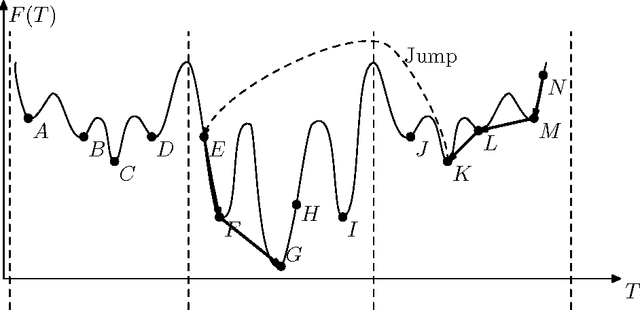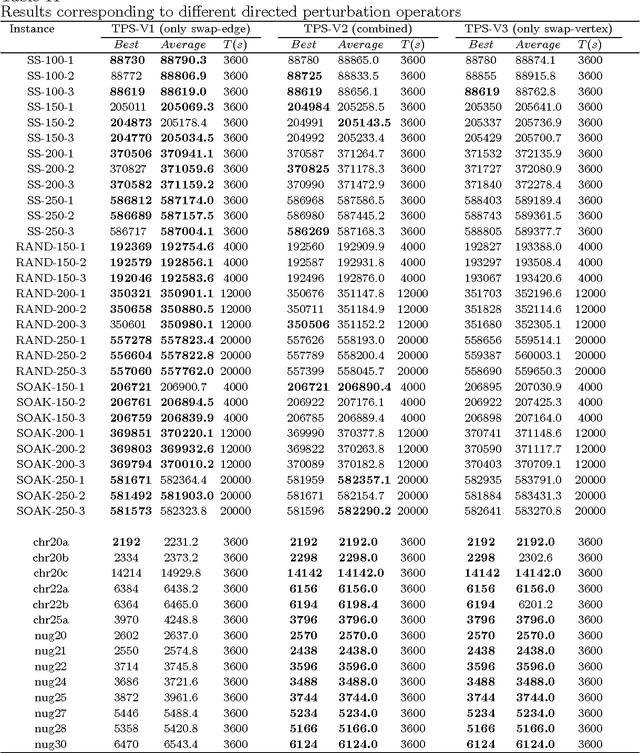A Three-Phase Search Approach for the Quadratic Minimum Spanning Tree Problem
Paper and Code
Feb 06, 2014



Given an undirected graph with costs associated with each edge as well as each pair of edges, the quadratic minimum spanning tree problem (QMSTP) consists of determining a spanning tree of minimum total cost. This problem can be used to model many real-life network design applications, in which both routing and interference costs should be considered. For this problem, we propose a three-phase search approach named TPS, which integrates 1) a descent-based neighborhood search phase using two different move operators to reach a local optimum from a given starting solution, 2) a local optima exploring phase to discover nearby local optima within a given regional search area, and 3) a perturbation-based diversification phase to jump out of the current regional search area. Additionally, we introduce dedicated techniques to reduce the neighborhood to explore and streamline the neighborhood evaluations. Computational experiments based on hundreds of representative benchmarks show that TPS produces highly competitive results with respect to the best performing approaches in the literature by improving the best known results for 31 instances and matching the best known results for the remaining instances only except two cases. Critical elements of the proposed algorithms are analyzed.
 Add to Chrome
Add to Chrome Add to Firefox
Add to Firefox Add to Edge
Add to Edge